Chinese American family meets descendants of the Black couple who rented to them when no one would (original) (raw)
Sept. 17, 2024, 10:35 PM UTC
CORONADO, Calif. — Standing on their lawn, members of the Dong family waited to meet the great-grandkids of a Black couple who rented a home to them a generation ago, when laws favored white residents. It was their first meeting on storied land.
In 1939, Gus and Emma Thompson, a Black entrepreneurial couple, agreed to rent and eventually sell the house they owned to the Dongs, a Chinese American family.
The Thompsons’ decision touched off an upward trajectory in their lives, said Ron Dong, 87, who grew up in the house with his parents and three siblings. On Monday, the Dongs welcomed the Thompsons’ great-grandchildren back to the home where their lives intersected. The meetup was ahead of a dedication ceremony to name San Diego State University’s Black Resource Center after Emma and Gus, who was born into slavery in Kentucky.
“Oh, my gosh, we are so glad to be meeting!” Janice Dong, Ron’s wife, told Ballinger Gardner Kemp, 77, and Lauren Kemp Few, 66, the Thompsons’ great-grandchildren. The two families embraced in a tangle of open arms.
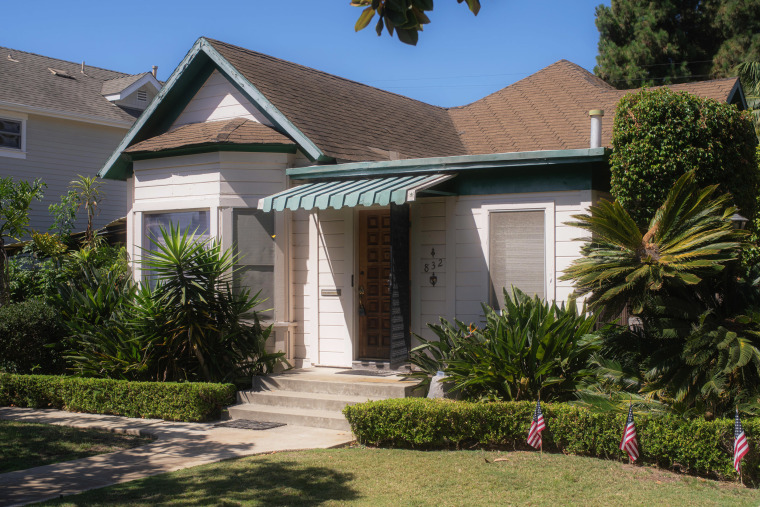
Ron Dong grew up in the house with his parents and three siblings.Alan Nakkash for NBC News
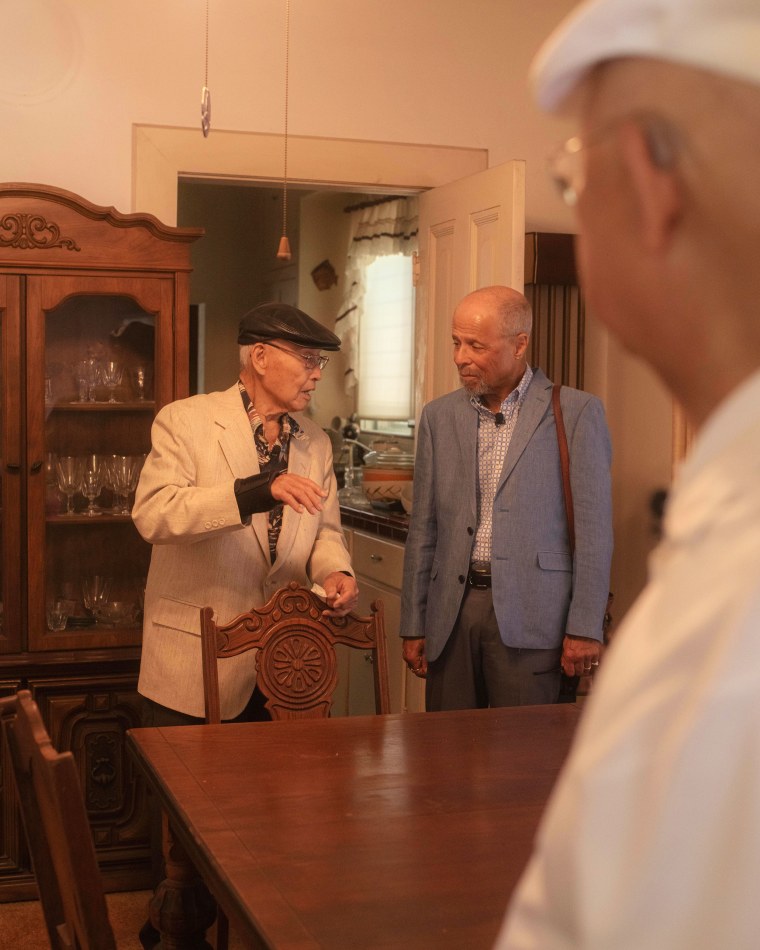
The Dong family is donating the proceeds of the house sale to support the Black community.Alan Nakkash for NBC News
In March, the Dongs announced they were donating $5 million to Black college students using proceeds from the sale of the house and the eight-unit apartment complex next door. It was a way to thank the Thompsons for helping them get established in American society, they said.
Before the house sells, the Dongs wanted to give the Thompsons’ great-grandchildren a tour. Walking through the three-bedroom home, Few said she could feel her ancestors’ presence. The living room was lined with pictures of her grandparents from a Coronado Historical Association exhibit about the city’s Black history.
“It’s a bit overwhelming,” Few said as she wiped away tears. When she heard about the Dongs’ plan to donate proceeds from the sale to Black college students, she was struck by their generosity.
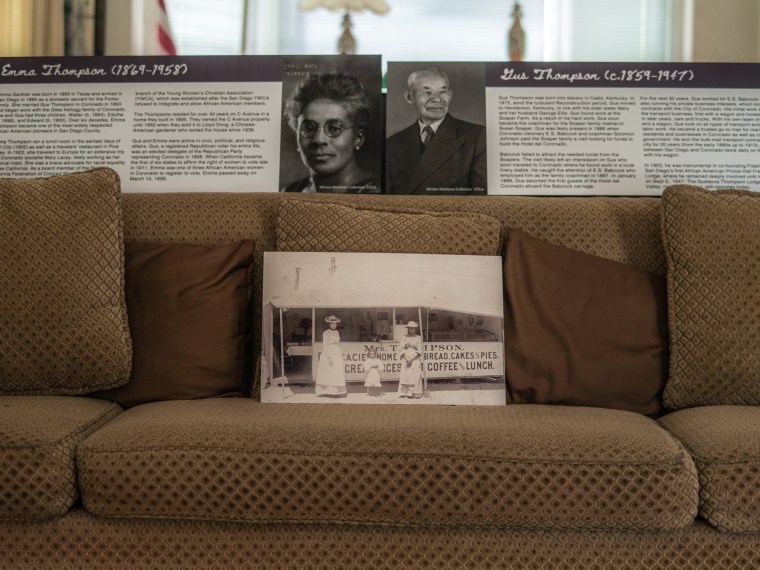
Portraits of Emma and Gus Thompson on display inside of the Dong family home.Alan Nakkash for NBC News
“You don’t hear about these things,” she said. “You just don’t.”
The two families, who live out of state and in different California cities, returned to Coronado on Monday in honor of the couple who built the house. Later that day, the Dongs and Thompsons’ great-grandchildren cut a ceremonial ribbon for the new center at SDSU.
It’s the American dream, said Lloyd Dong Jr., 82, Ron’s younger brother.
“The Thompsons gave my parents a foundation to owning a house and sending their kids to college,” he said. “Selling the house and donating it to the Black community for their education is a good thing.”
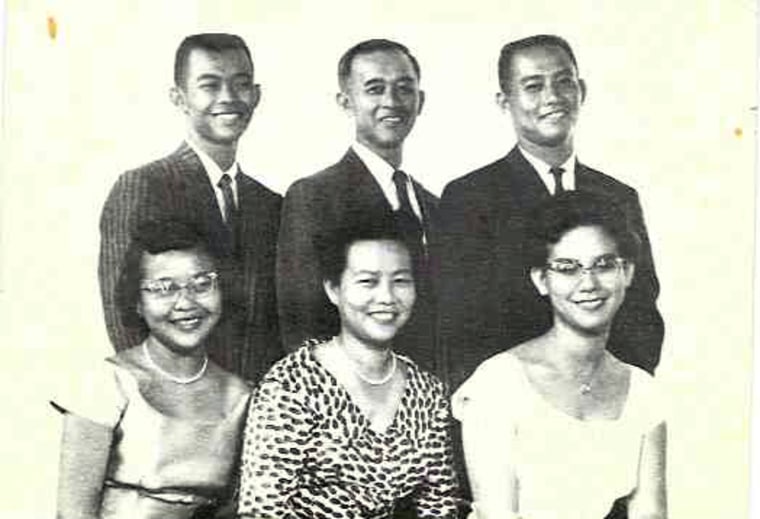
A Dong family photo from 1955. From top left, Lloyd Jr., Lloyd Sr. and Ron Dong. From bottom left, Jackie, Margaret and Jeanette Dong.Courtesy Dong Family
The Dongs’ property, which includes the apartment complex next door, was listed for $8.5 million. The sale recently fell out of escrow. The Dongs are working with the Coronado Historic Resources Commission to determine the home’s historic designation before they put it back on the market.
His childhood home holds sentimental family memories but no official historical value, Ron Dong said. To create more living space for the family of six, his father, Lloyd Dong Sr. — a gardener from Central California — made many changes to the house, including the front exterior.
The walls once resonated with the sounds of Ron Dong’s teenage friends’ enjoying home-cooked Chinese dishes made by his mother, Margaret. Now the house is mostly empty. The family held an estate sale to sell the “pure vintage” belongings, said Janice Dong, 87.

A tea set from the Coronado home.Alan Nakkash for NBC News
The history of the house dates to the late 19th century, when Gus Thompson traveled from Kentucky to California to work at the Hotel Del Coronado. He built the house and the next-door barn on C Avenue in 1895, before the city’s racial housing covenants restricted Black residents and other people of color from buying or renting properties in the neighborhood. In what Kemp, his great-grandson, called the spirit of defiance and the resolve to help others, Thompson converted the upper level of the barn into a boarding house for the vulnerable.
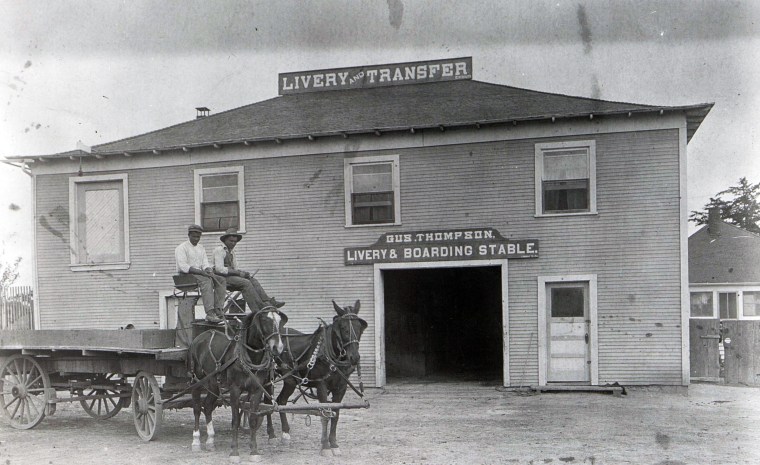
Gus Thompson owned and operated a livery stable and boarding house on the property. Courtesy Kevin Ashley
In 1955, Emma Thompson sold the Coronado home and the barn next door to the Dongs, who became the first Chinese American family to purchase real estate in Coronado, said Kevin Ashley, a Coronado historian.
It is a piece of land that since the 1890s has been owned only by either a Black or a Chinese American family, Ashley said.
The Dong and Thompson families say they were both marginalized people trying to make it in a land that didn’t see them as full citizens, so they supported each other. Now the Dong brothers are carrying on the spirit.
The Thompsons and Dongs’ decision to pay it forward, said Christopher Manning, SDSU’s vice president for student affairs and campus diversity, embodies the activist Grace Lee Boggs’ words: “The only way to survive is by taking care of one another.”
The $5 million gift will be used to enhance the center’s academic efforts, grow its mentorship program, advance support for mental health and upgrade facilities, Manning said.

The dedication ceremony to name San Diego State University’s Black Resource Center after Emma and Gus.Alan Nakkash for NBC News
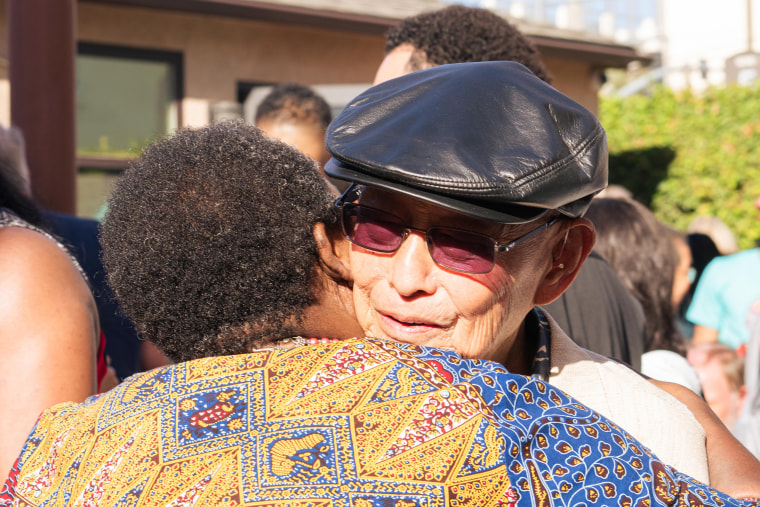
The Dong family wanted the Thompson family descendants to tour the storied home before they sold it.Alan Nakkash for NBC News
At the dedication ceremony, Lloyd Jr. leaned against the square building sign with Thompson’s name watching students walk by with teal shirts emblazoned with the Thompsons’ likenesses.
Nearby, Kemp leaned in to repeat words he first said at their meeting at the Coronado house:
“Your parents would be so proud.”
Lynda Lin Grigsby
Lynda Lin Grigsby is a freelance journalist and editor who writes about the intersections of race, identity and parenting.